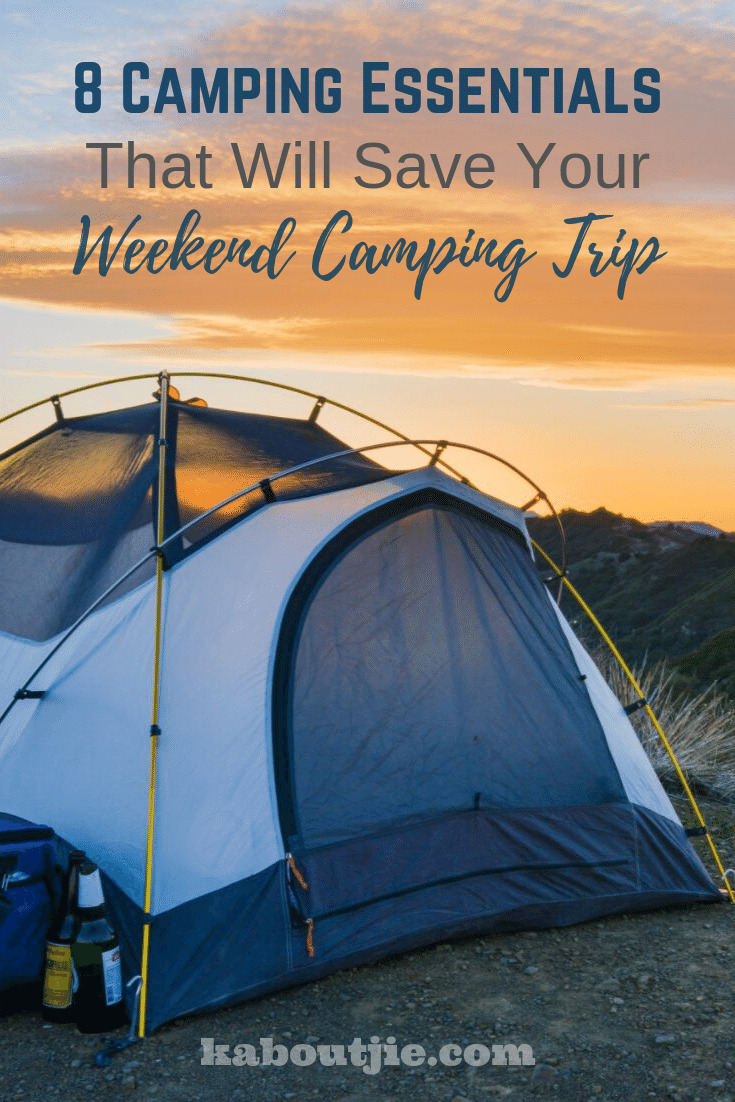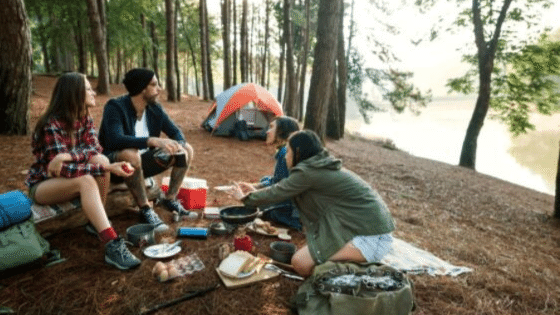When you’re tired and overwhelmed by the noises and distractions of the city, going camping in the wilderness for a weekend can help rejuvenate the mind and the body. Camping can be both exciting and relaxing, but that’s only the case when you’ve prepared well for the journey. If you went without your gear, you’d be going back more stressed than you were before camping.
It can be so easy to forget to pack certain things when you already have so many things to prepare, so here’s a checklist of camping essentials to help you remember everything you need to make your camping experience fun and relaxing.

Tent
First on the list is your tent. You need to secure a tent for yourself unless you’re taking shelter in your vehicle or you have some sort of accommodation on the camping grounds.
Your tent will serve as protection from the weather, temperature, insects, and animals, so choose a tent that’s sturdy yet lightweight and a suitable size for you. If you don’t own one, you can choose from different types of tents you can buy. The most common tents for camping and hiking are backpacking tents, bivy tents, and hammock tents. Choose one based on your needs.
Some tents are also specially made to guard against cold weather, UV rays, or other dangers in the wilderness, so be sure to consider these when buying a suitable tent.
Water
Dehydration may not sound serious, but it can cause lethargy, temporary paralysis, cramps, seizures, and even death when left untreated for long. When you go camping in the wilderness, there’s always the chance that you won’t have a clean water source nearby.
Before you go, you need to assess the location first and determine whether there’s any available water supply. You can use that information to decide how much water you’re going to bring in your camping. Remember to take into account the water you will use for cooking, washing, and cleaning up.
Food
Unlike what you see in movies and TV, the wilderness is not always teeming with edible wild vegetables and fruits, and it’s certainly not that easy to hunt for game. If you’re only staying for a weekend, you should bring food to feed yourself while camping.
Choose foods that don’t require much preparation and don’t spoil quickly, like dehydrated food, trail mix, nuts, bars, and ready-to-eat food and beverages. You can also prepare and pack easy camping dishes for your meals so you don’t have to cook when you’re there.
Cookware
If you’re planning to make your food at the camping ground, you need cooking tools to prepare your food. There are cooking sets that are made for camping; they’re lightweight and foldable, making them more convenient and easier to pack.
Bring at least one cooking pan, a spoon, a fork, a plate, and a drinking cup. Remember to bring a portable burner for cooking if you don’t know how to build a fire.
Don’t forget to bring some dishes to make braai salads and sides too!

Toiletries
Your biological functions won’t suspend themselves just because you don’t have a proper toilet. When nature calls, you need to answer it no matter wherever you are and whatever you’re doing. You need to take care of your hygiene too.
That said, remember to pack your toiletries for your camping trip. Bring toilet paper, biodegradable cleansing wipes, insect repellent, sunscreen, shampoo, soap, deodorant, hand sanitizer, toothpaste, and lip balm. Don’t forget your hygiene tools, like your toothbrush, hairbrush, mirror, nail file, and razor.
Sleeping Bag and Blanket
A tent won’t be enough to keep you warm and comfortable when you sleep in the wilderness. The forest ground is hard and rocky, and the tent floor is thin. You need a sleeping bag to cushion your body and a blanket to provide further protection from the cold.
The ideal camping sleeping bag and blanket are durable, waterproof, and lightweight. They should also have some form of cushioning for maximum comfort and protection.
Emergency Kit
Never ever leave your house without your emergency kit. These tools can be your lifesaver in case you encounter a dangerous situation. Your emergency kit should include the following:
- An ax
- A first aid kit
- A flashlight
- Duct tape
- Emergency blanket
- Extra batteries
- A knife
- A multitool
- A rope
- A knife
- Safety pins
- Scissors
- Super glue
- Tweezers
Camping Apparel
If you’re going to hike some distance before you set up camp, you should wear the proper attire for your comfort, mobility, and protection. If the weather is cold, wear a jacket, and bring a raincoat. Wear pants and a long-sleeved shirt to protect your arms and limbs from UV rays, insect bites, tall grass, and rocks.
If you’re going uphill, bring trekking cane for support, and wear protective gloves to avoid injuring your hand. Try these convertible mittens, which can provide ample protection from the cold and sharp rocks. The finger covering is removable, so you can convert them into fingerless gloves if you need better hold.
Before You Go
Camping is one of the favorite outdoor activities of people across different demographics. It’s fun and exciting but also nerve-wracking. Even if you’ve gone camping several times, you never really know what you will encounter in the wilderness every time you go.
Camping is always an adventure, but embarking on adventures entails certain risks. What you can do to protect yourself is to plan and prepare yourself for every situation, and it starts by ensuring you have all your camping essentials with you before you set out.
 Kaboutjie SA Mommy Blogs by Lynne Huysamen
Kaboutjie SA Mommy Blogs by Lynne Huysamen





We are going camping in December so will definatley refer back to this article.
l loved your camping tips, a job well done.
Love this awesome tips
Thank you for all the camping tips, we as a family love the outdoors and camping weekends and will surely make use of these helpful camping tips! As the saying goes”Your Never To Old To Learn New Things” Thanks so much KABOUTJIE
we’re planning to maybe go camping for the first time with our kids in mid February. this check list is Definitely going to help. thank you for making it easier for me not to forget some of the essentials before hitting the road!